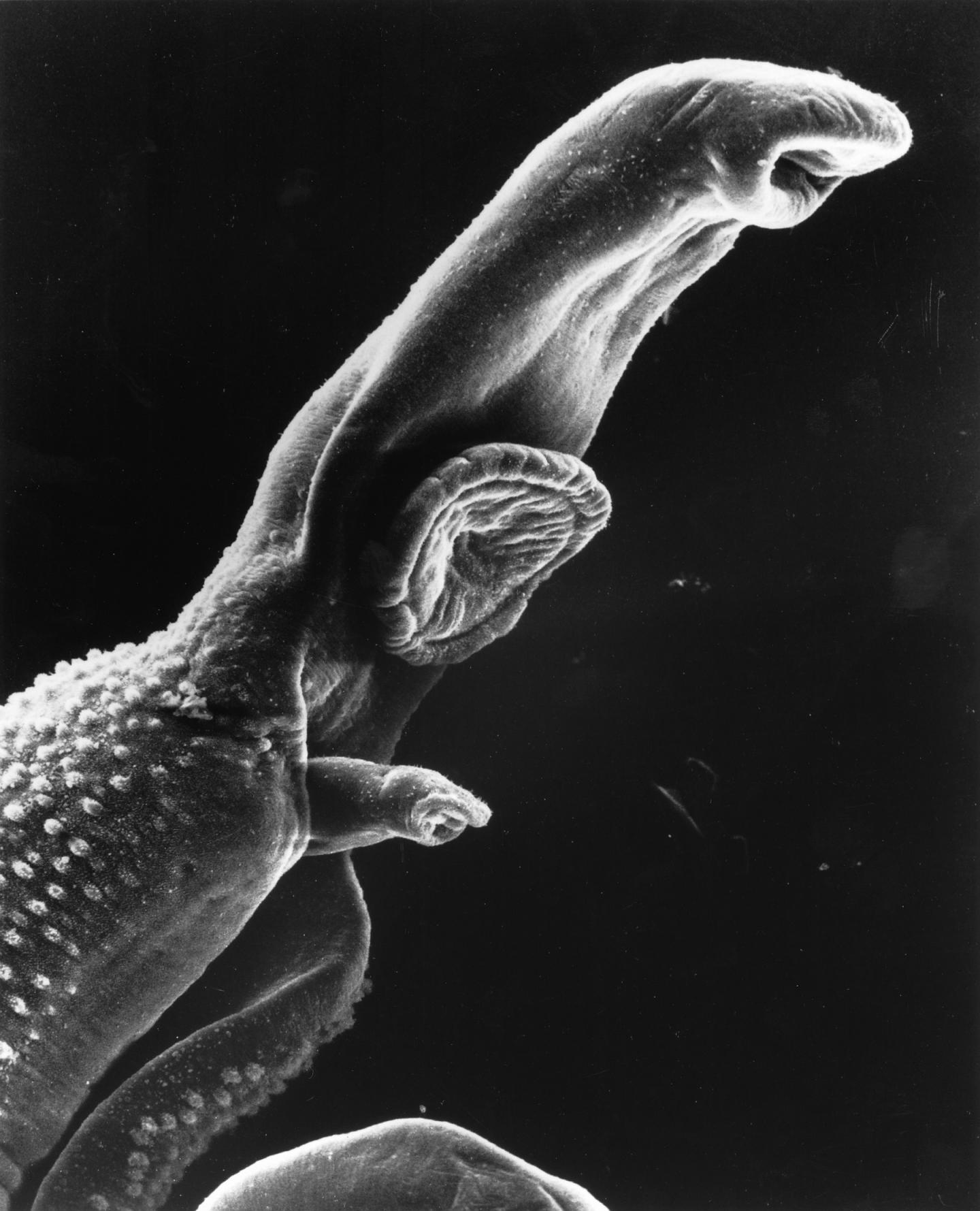
Credit: Wetzel and Shaefer, Wikimedia Commons, Public Domain, 2001
Of the 34 million people worldwide with HIV, and the 200 million with schistosomiasis, the majority live in Africa– where millions of people are simultaneously infected with both diseases. Now, researchers reporting in PLOS Neglected Tropical Diseases have shown that schistosomiasis infections are associated with increased HIV onward transmission, HIV acquisition in HIV negative women with urogenital schistosomiasis, and progression to death in HIV positive women.
Schistosomiasis is caused by a parasitic worm and is second only to malaria in terms of parasitic diseases with the most global health impact. Schistosomiasis may cause lesions in the genital tract and has been shown–in cross-sectional studies– to be associated with HIV prevalence.
In the new work, Dr. Kristin Wall, of Emory University, USA, and colleagues retrospectively tested the blood sera of 2,145 people enrolled in a cohort of HIV-discordant heterosexual couples in Zambia. Each sample was measured for schistosome-specific antibody levels. In addition, health information including HIV status over time and death was available for the cohort.
59% of all participants were positive for a schistotome-specific antibody response. Among men and women positive for HIV, baseline response for schistosomiasis was associated with an increased risk of transmitting HIV to their uninfected partner. In addition, among women, schistosomiasis was associated with increased acquisition of HIV (in HIV negative women with urogenital schistosomiasis) and increased progression to death (in HIV positive women).
“Since treatment of schistosome infections with praziquantel is inexpensive, effective, and safe, schistosomiasis prevention and treatment strategies may be a cost-effective way to reduce not only the symptoms associated with the infection, but also new cases of HIV and death among HIV+ persons,” the researchers say.
###
In your coverage please use this URL to provide access to the freely available paper: http://journals.
Citation: Wall KM, Kilembe W, Vwalika B, Dinh C, Livingston P, et al. (2018) Schistosomiasis is associated with incident HIV transmission and death in Zambia. PLOS Neglected Tropical Diseases 12(12): e0006902. https:/
Funding: This work was supported by the Bill and Melinda Gates Foundation [Grant ID 1005342], the National Institute of Child Health and Development [NICHD R01 HD40125]; National Institute of Mental Health [NIMH R01 66767]; the AIDS International Training and Research Program Fogarty International Center [D43 TW001042]; the Emory Center for AIDS Research [P30 AI050409]; National Institute of Allergy and Infectious Diseases [NIAID R01 AI51231, NIAID R01 AI040951, NIAID R01 AI023980, NIAID R01 AI64060, NIAID R37 AI51231]; the US Centers for Disease Control and Prevention [5U2GPS000758]; and the International AIDS Vaccine Initiative. This study was made possible by the generous support of the American people through the United States Agency for International Development (USAID). The contents do not necessarily reflect the views of USAID, CDC, or the United States Government. The funders had no role in study design, data collection and analysis, decision to publish, or preparation of the manuscript. The funders had no role in study design, data collection and analysis, decision to publish, or preparation of the manuscript.
Competing Interests: The authors have declared no competing interests exist.
Media Contact
Kristin Wall
[email protected]
Original Source
http://journals.
Related Journal Article
http://dx.




